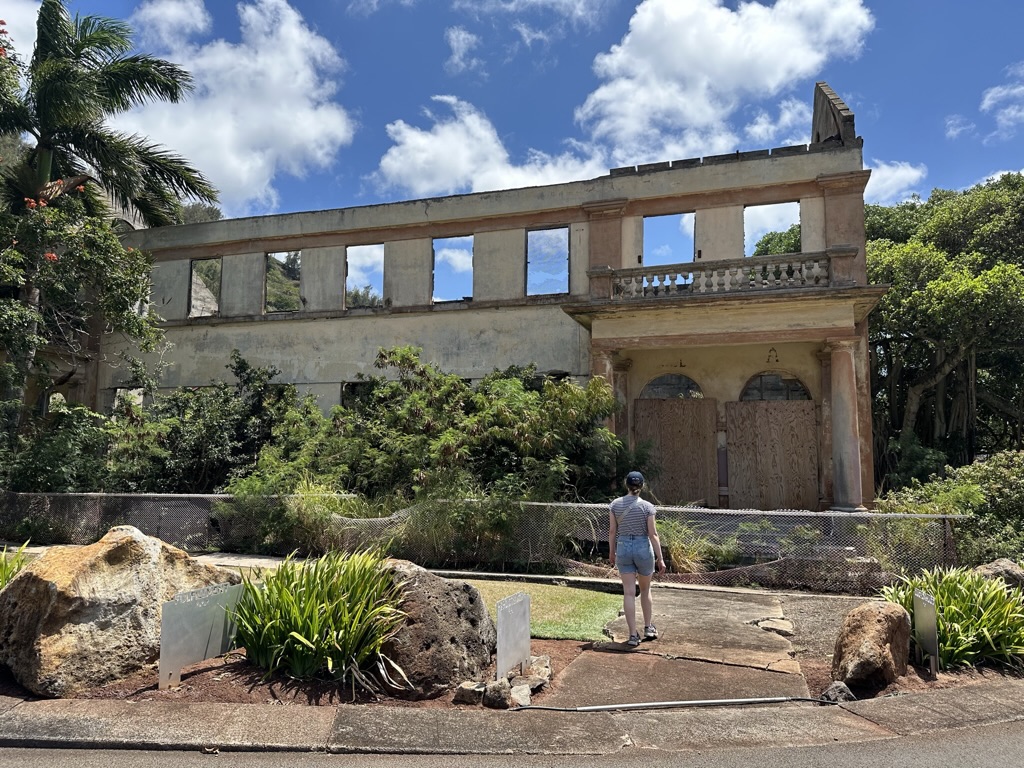U Humanities Professor Receives NEH Grant to Memorialize Children Incarcerated at the Waialeʻe Industrial School for Boys in Hawai’i
The grant is part of an initiative to fund projects on the history of Federal Indian Boarding Schools.
The National Endowment for the Humanities has awarded Maile Arvin, associate professor of history and gender studies at the University of Utah – in collaboration with the North Shore Community Land Trust in Hawai’i – $29,445 to support a community-based oral history research and story-mapping project of the Waialeʻe Industrial School for Boys. As part of a larger effort to fund projects that expand the reach and impact of the Federal Indian Boarding School Initiative, NEH has awarded more than $400,000 to 14 Tribal Nations and organizations.
Opened in 1903 and located on the North Shore of O’ahu, the Waialeʻe Industrial School was part of a larger government-run system of institutions that incarcerated children and adults in the Territory of Hawai’i. The same white settlers who overthrew the Hawaiian Kingdom in 1893 became the leaders of the new Territorial government in 1900. Yet white people remained a small minority in Hawaiʻi, and thus the government enacted a number of measures to repress Native Hawaiian language, culture, religion and political loyalty to the former Kingdom government. The Industrial School at Waialeʻe remained open at the site until 1950.
According to Arvin, a Native Hawaiian, youth would be sentenced to these types of institutions for minor criminal offenses such as truancy, petty theft, or more general “waywardness” or “incorrigibleness.” However, rather than just being sites where “bad kids” were sent, these institutions effectively criminalized Native Hawaiian forms of kinship and child raising. For example, children who were hānai-ed (a Hawaiian form of open adoption) to a grandparent or other relative were sometimes seen by the government as “abandoned” by their biological parents, and subject to institutionalization.
The goal of Arvin’s project is to remember and memorialize these children in culturally meaningful ways, which can help to address the intergenerational impacts this history continues to have. With the support of the NEH grant, Arvin plans to create educational resources related to the history of the school, create a walking tour of the land and a digital story map that can provide further historical information and photos, which will be housed on the project’s website, naleipoinaole.com.
“Overall, we want to offer space and time for the communities impacted most by the history of these schools to process, grieve, and heal,” said Arvin. “That healing will be a long-term, collective process, but we know that bringing more people to these sites and allowing them to walk, talk, and learn on the land will feed us all in many ways, and help us ensure that the children kept at the industrial schools are not forgotten.”

Photo of what is left of the Waialeʻe Industrial School for Boys in Hawai’i
The grant will support Eliana Massey, an undergraduate research assistant to Arvin, in traveling to Hawaiʻi to work on this project over the summer. With research funding support from the U (specifically a VPR Seed Grant through the College of Social and Cultural Transformation, and the Office of Undergraduate Research’s Summer Program for Undergraduate Research), Massey, along with another undergraduate research assistant, Callie Avondet, joined Arvin for a week last summer to do archival research and community engagement on this topic. The NEH grant will allow Massey, who is also Native Hawaiian, to spend more time working with North Shore Community Land Trust in person this summer.
"While I was in Oahu, I helped identify and scan primary source materials in archives, visited the locations of former institutions, and met with members of our community advisory board,” said Massey, who is studying museum studies and philosophy of science at the U. “I am grateful I’ve been able continue this important research since our field work research trip. This trip was especially memorable for me because I am Kanaka Maoli (Native Hawaiian) and it was my first-time visiting Hawaiʻi and seeing some of the places I’ve heard my family members mention."
The special NEH Chair’s grants support federally recognized Tribes, nonprofit Tribal entities, and state organizations that work with Tribal communities in 11 states on an array of education, research, and public programs that shed light on the legacy of the system of 408 Federal Indian boarding schools operating in the United States between 1819 and 1969.
“NEH is pleased to award these grants to fourteen Tribal Nations and organizations to enlist their help in recovering and telling the history of Federal Indian boarding schools and the students who passed through them,” said NEH Chair Shelly C. Lowe (Navajo) in the NEH press release. “These grants will help document this often painful past, shed light on the far-reaching consequences of Federal Indian boarding school policies on Native communities, and provide opportunities for communities to discuss and heal from their legacy.”
